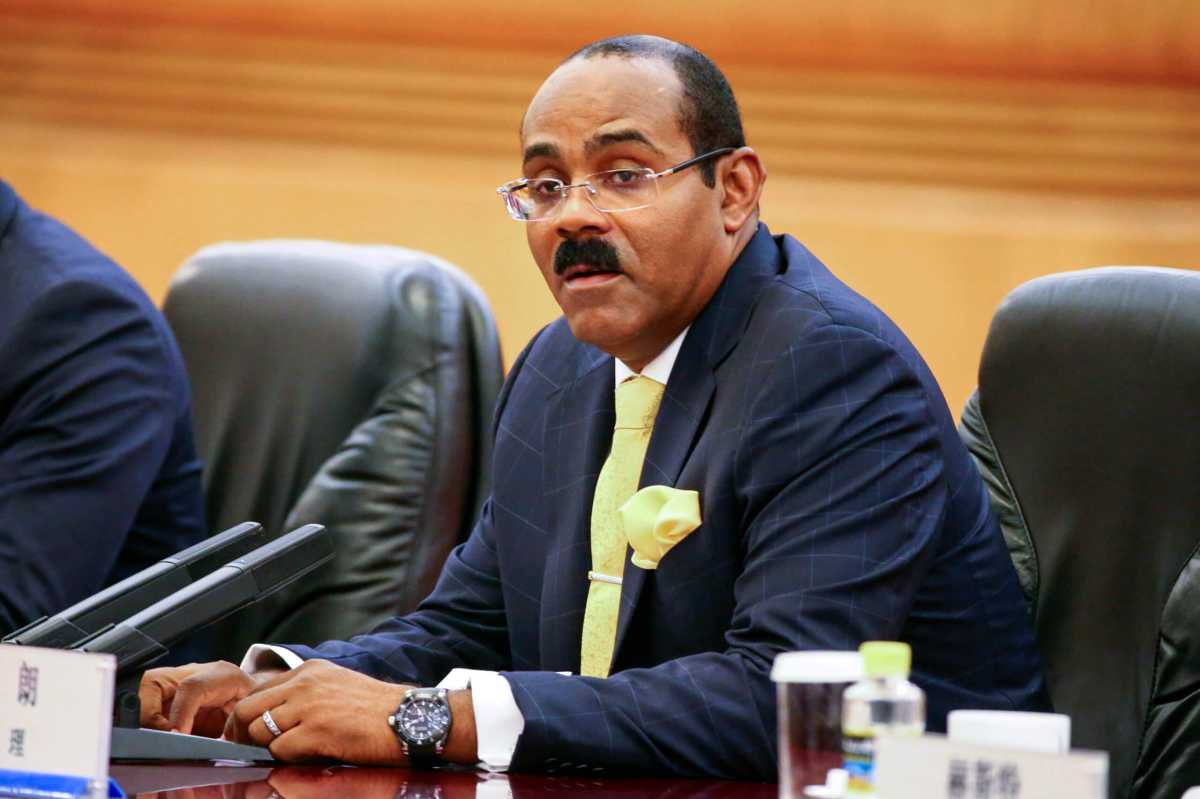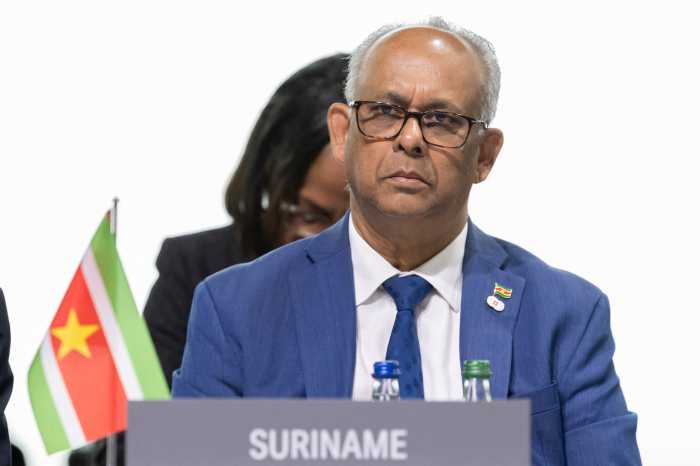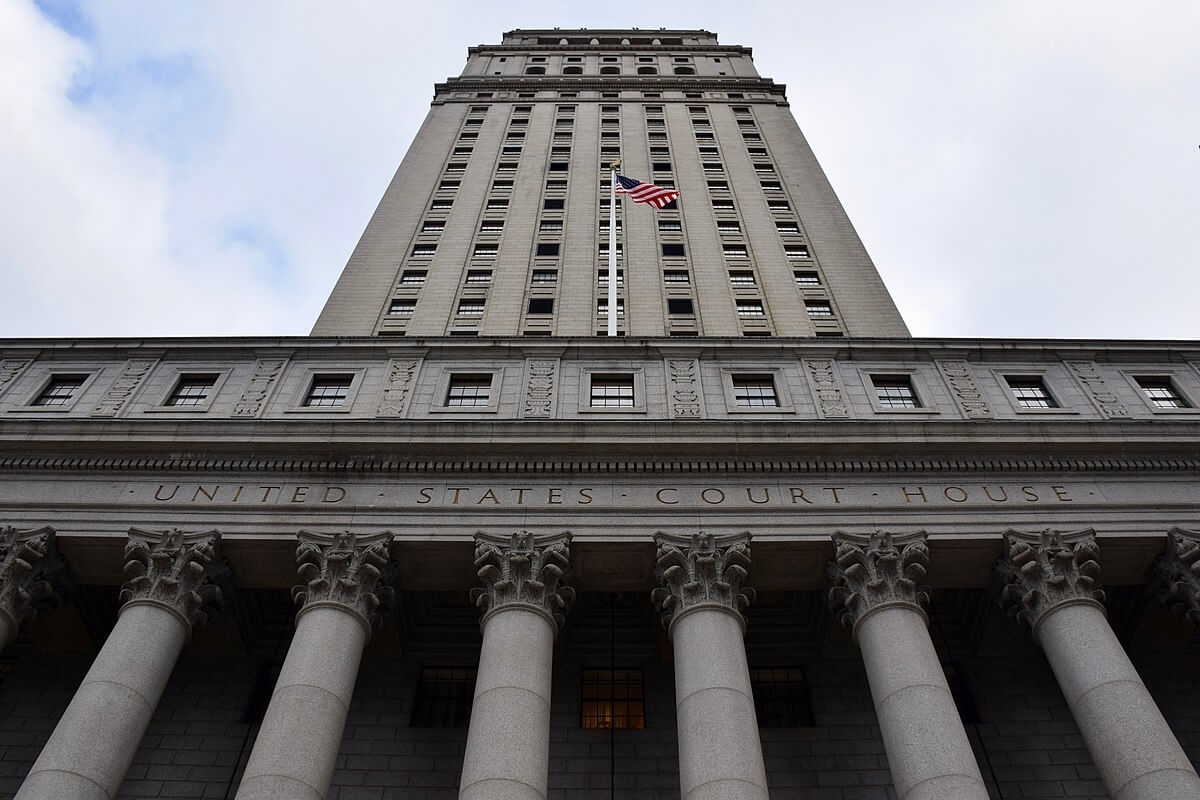ANTIGUA
The Antigua and Barbuda government has hinted at the possibility of reversing a decision to end the state of emergency (SoE) on Dec. 23 following the discovery of a new variant of the COVID-19 in South Africa recently.
Several countries, including the United Kingdom, the United States and some Caribbean countries (CARICOM), have announced a travel ban on passengers coming from several African countries, Mozambique and Zimbabwe following the discovery of the Omicron strain, which is now being described as a “variant of concern.”
Prime Minister Gaston Browne said the government may now have to consider the decision to end the SoE this month.
He said the SoE had been put in place to curb the spread of the virus that has so far killed 117 people and infected more than 4,140 others since March last year.
Browne said that as it stands now, the policy initiative to lift the state of emergency on the 23rd still stands, but it could be reviewed and reversed depending on any significant spread of this new variant, adding that the local data on the pandemic, though encouraging, could be affected significantly.
He acknowledged the United Kingdom, where cases of the new variant of the virus have been detected, is Antigua and Barbuda’s second largest tourism market and as a result the island could be among the first in the region to be affected by Omicron due to the close relationship with the UK.
BARBADOS
The Barbados-based Caribbean Development Bank (CDB) has announced plans to stage a two-day virtual Caribbean Conference on Corruption and Cybercrime to be held this month.
CDB said the conference will allow for tought-leaders from across the world to share and discuss new challenges and solution for corruption, compliance, and cybercrime in the region.
It said speakers will experience global and anti-money laundering specialists, cybercrime professionals, development bankers and law enforcement personnel
The feature speakers include Mouhamadou Diagne, vice president, Integrity, of the World Bank Group and Governor of the Eastern Caribbean Central Bank (ECCB), Timothy Antoine.
The CDB said that the featured sessions at the forum will include drivers of corruption in the Caribbean, the role of the private sector in curbing corruption, money laundering and cybercrime.
CARIBBEAN
The Trinidad-based Caribbean Public Health Agency (CARPHA) has signed a memorandum of understanding (MoU) with the British-based Global Vector Hub (GVH) establishing a framework for future collaborations in the field of vector-borne diseases and capacity-building in the Caribbean and surrounding regions.
CARPHA’ executive director Dr Joy St John and GVH’s director Professor James Loga signed the MoU recently.
St John said vector-borne diseases continue to affect CARPHA member states.
He said the partnership with Global Vector Hub and its global network will significantly increase the resources available to member states to create more resilient health surveillance. CARPHA and the GVH will share resources and network connections to facilitate an improved exchange of information on vector control.
GUYANA
Guyana President Dr. Mohamed Irfaan Ali has promised to focus on the fight against crime, although according to the latest statistics, there has been a decrease when compared to figures released in 2020.
Ali said the issue of crime is a major concern for Guyanese nationals.
He said the government’s targeted strategy will include interventions in regions (hot spots) with high crime rates.
The president said while crime decreased 19.4 percent nationally, Region One recorded a 13.4 percent increase in crime.
He noted there is an increase population on the region, which is leading to social and economic issues for which the resulting factor is crime.
The president in giving a live statement on Facebook recently said the government will also be investing significantly in intelligence gathering.
HAITI
The Inter-American Development Bank (IDB) has approved US$60 million of non-reimbursable financing to improve Haiti’s food security of rural households, including farmers, fishers, sea food merchants and rural workers, by promoting rural productivity and connectivity to rural markets.
The agriculture, fisheries and rural infrastructure activities proposed in the program will increase productivity and income while promoting the sustainable management of the critical resources on which rural beneficiaries depend.
The program will support farmer’s adoption of agricultural technologies, improving food availability through technical assistance, improving food availability through increased production and food access through higher agricultural revenues.
JAMAICA
The Jamaican government recently passed the Trafficking in Persons (Prevention, Suppression and Punishment) (Amendment) Act 2021, creating stiff penalties for offenders.
The decision was made to amend the monetary penalties to remove option of fines in lieu of custodial sentences as a penalty for certain egregious offenses and increase the monetary penalties under Section 15 of the Act.
The amendment also makes a consequential amendment to Section 10 of the Child Care and Protection Act to remove the option of fine in lieu of custodial sentence.
Minister of National Security Horace Chang, in closing the debate on the bill, said the government is creating a legal framework that punishes human trafficking, while deterring persons from getting involved in criminal activities.
He said trafficking in persons provides significant funding to the criminal underworld.
ST. VINCENT
St. Vincent and the Grenadines (SVG) generous donation of 16,000 AstraZeneca vaccines to Trinidad and Tobago in May has now cost the country US$70,000.
According to Prime Minister Dr. Ralph Gonsalves, COVAX, the multilateral facility aimed at ensuring all countries have “fair and equitable access” to COVID-19 vaccines, felt that any excess vaccines in SVGs possession should not have been shared, but returned to the facility.
He disclosed that as a result, SVG was made to pay US$70,000 to COVAX for the vaccines it donated to T&T.
Gonsalves said he turned down an offer for Prime Minister Dr. Keith Rowley to help foot the bill.”
In April, SVG received its first tranche of AstraZeneca vaccines via COVAX. The shots were due to expire in June.
Still recovering from the explosive eruption of La Soufriere volcano, SVG sent 16,000 of the vaccines to Trinidad and Tobago on May 20 as it did not want them to expire.
At the time, T&T was battling a spike in COVID-19 infections.
“COVAX said to us that what we gave to Trinidad and Tobago should not have been done so. We should have given them back and they will give whoever they want,” he said
Gonsalves said SVG has already paid the US$70,000 to COVAX as it did not want to jeopardize another shipment of Pfizer vaccines from the United States, which is being done via COVAX this time.
TRINIDAD
The United States government last week donated 304,200 doses of Pfizer vaccines to Trinidad and Tobago.
The US Embassy in Port of Spain said the donation “represents the second tranche out of a total 907, 920 donated to the people and Government of Trinidad and Tobago.
“The donation brings the total number of Pfizer vaccines that the United States has donated to Trinidad and Tobago to 609, 570,” the Embassy said.
It said the donation is “part of the Biden-Harris administration’s commitment to lead in the effort to vaccinate the world, having shipped over 280 million free vaccines to 110 countries to help us get out of the pandemic”.
The nearly 908,000 doses the United States has committed to donating to Trinidad and Tobago will constitute 77 percent of all vaccines donated to T&T since deliveries started in February.
It said the US only donates vaccines approved by the US Food and Drug Administration (FDA).
— Compiled by Azad Ali

























